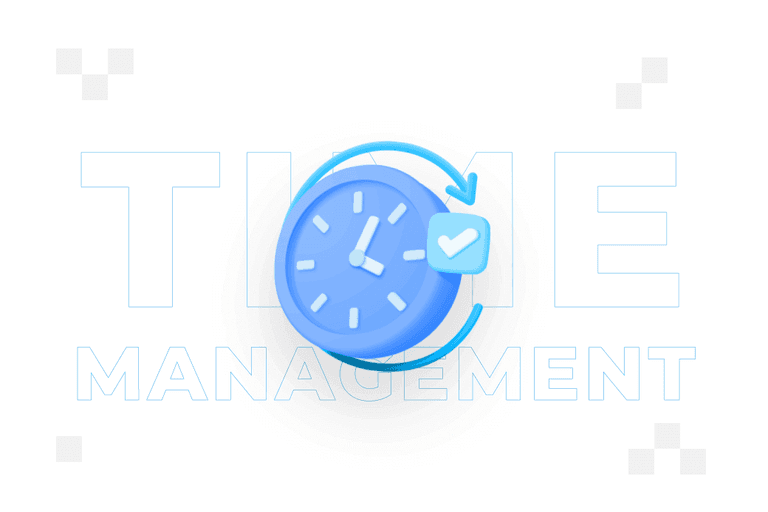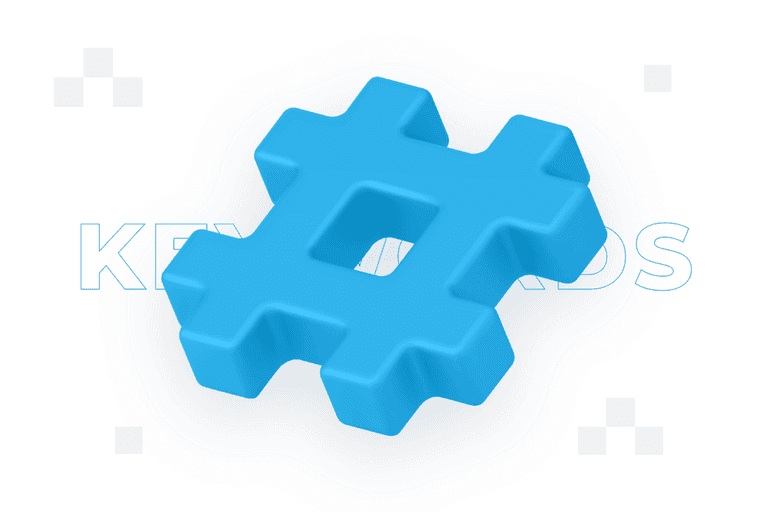
Time management – what is it and how to do it well?

Skilful time management has become an indispensable tool for efficiency, success and balance in professional and private life. We will look at the key aspects of this skill. In the following text, we will provide a definition of time management, find out why effective time management translates into increased productivity, better mental health and improved quality of life, as well as practical tips and tricks.
From the following text you will learn:
- What is time management and what does it involve?
- How does time management relate to goal setting?
- What are the methods of time management?
- What are ways to manage time effectively?
- Why is it important to manage your time?
Time management – definition
Time management is the ability to plan, organise and effectively use available time to achieve specific goals and objectives. It involves a conscious approach to time and using it in an efficient and effective way in the context of both work and personal life.
The main aspects of time management include:
- Planning – which is the process of identifying what specifically needs to be achieved and when. This allows goals to be clearly set and broken down into specific steps and tasks.
- Organising – the ability to effectively organise tasks, time and resources so that work runs smoothly and without unnecessary delays.
- Eliminating wasted time – is about avoiding activities that do not provide value or contribute to goals. It is also about avoiding overloading yourself with tasks that are worthless.
- Avoiding multitasking – focusing on one task at a time rather than trying to do multiple tasks at once. Multitasking can lead to reduced productivity and quality of work.
- Using tools effectively – using time management tools such as calendars, task lists or progress monitoring apps can help with organisation and focus.
- Maintaining a work-life balance – proper time management also includes ensuring a balance between work responsibilities and time for leisure, family and hobbies.
- Analysing and adjusting – regularly reviewing achievements and results and adjusting plans to meet changing needs and conditions.
Time management is the ability to plan and organise how to use available time to complete tasks efficiently and achieve set goals. It includes techniques such as prioritising, planning, delegating and monitoring tasks to increase productivity and quality of life.
Definition of time management.
Time management versus goal setting
Time management and goal setting are two closely related concepts that play a key role in achieving success in both professional and personal life. Time management is not only an opportunity to make more efficient use of every minute in the day, but also a tool to help you achieve your goals. By effectively planning, prioritising and delegating tasks, time management enables you to direct your energy and resources in a way that maximises your chances of achieving your desired outcomes.
You cannot manage your time effectively without having clearly defined goals. Setting goals gives direction and meaning to all activities, and enables you to create a schedule or action plan that is results-oriented. Goals act as a compass to help you manage your time, indicating which tasks are most important and which can be put off for later
In practice, time management and goal setting often go hand in hand. Goals provide the framework within which we operate, while time management provides the tools and techniques needed to achieve them. This allows us to not only achieve more in less time, but also with greater efficiency and less stress. A lack of a coordinated approach to time management and goal setting can lead to distraction, inefficiency and, ultimately, burnout. It can also have a negative impact on the quality of personal life, relationships with others and an overall sense of fulfilment.
Time management methods
Time management methods are a variety of techniques and tools (including project management tools) designed to optimise time use, increase productivity and efficiency, and improve quality of life. They help to achieve both professional and personal goals while reducing stress and pressure levels.
Most time management methods are flexible and can be adapted to suit your needs. Some, such as Pomodoro, are very simple and can be easily implemented into your life. Others, like GTD, require a more complex system and some period of adaptation. However, they all emphasise the importance of setting and achieving goals. They also help you identify your priorities so that you can focus on what is really important.
Effective time management requires good planning and organisation. Regardless of the method chosen, the ability to realistically plan the time needed for different tasks and manage these tasks in a systematic way is crucial. It is impossible to manage time effectively without including time for rest and recuperation. It is therefore good to choose methods that allow for a work-life balance.
The choice of time management method depends on individual needs, lifestyle and nature of work. The most important thing is that the method you choose is in line with your goals and helps you to achieve them in an organised and efficient way.
Here are some well-known time management methods:
- Eisenhower Matrix (Eisenhower Matrix) – involves prioritising tasks based on urgency and importance. Tasks are classified as urgent and important, important but not urgent, urgent but not important, or neither urgent nor important.
- Pomodoro technique – involves dividing work time into 25-minute blocks (called ‘pomodoro’), separated by 5-minute breaks. After completing four ‘pomodoro’ cycles, a longer break is provided.
- Getting Things Done (GTD) – a complex time and task management system developed by David Allen. It involves organising and writing down all tasks and projects in a systematic way so that you can focus on them in a timely manner.
- Time Blocking – involves ‘blocking’ specific segments of time on the calendar for specific tasks or groups of tasks. This helps you to plan your day better and avoid multitasking.
- ALPEN – a German method that involves planning the day carefully, taking into account both the tasks to be completed and the time needed to complete them. This method also includes buffer time for unforeseen events.
- TRZOS method – a Polish time management method proposed by Jerzy Gut, Włodzimierz Szaraniewicz and Zbigniew Świątek. This method consists of creating a list of tasks, ranking them according to importance, applying the Pareto principle, determining the completion time, segregating and finally committing to action.
- Personal Kanban – has its roots in the Toyota production system and has been adapted to manage personal tasks and projects. It involves visualising the workflow through a Kanban board, where tasks go through different stages such as ‘To Do’, ‘In Progress’ and ‘Done’.
- ABC analysis – involves dividing tasks into three categories according to their importance: the highest-priority tasks, which are critical and require immediate action (A); important tasks but of lower priority (B); the lowest-priority tasks, which can be postponed or even ignored (C).
Each of these methods has its advantages and disadvantages, and their effectiveness depends on individual needs and the context in which they are applied. They can also be combined and adapted according to one’s needs.
Ways to manage your time effectively
How do you manage your time effectively? Applying the following 15 tips will bring you closer to better time organisation and help you achieve positive results at work, but also in your personal life:
- Create task lists – writing down daily or weekly task lists helps you to organise your priorities and track your progress.
- Prioritising – identifying which tasks are most important and need immediate attention and which can wait helps you focus on key activities. Among other things, a Pareto analysis can help you identify the most important tasks.
- Avoiding multitasking – focusing on one task at a time, which leads to better quality work and fewer errors.
- Long-term planning – setting long-term goals and breaking them down into smaller steps that can be achieved over a period of time.
- Delegating tasks –delegating relevant tasks to others, allowing you to focus on tasks of greater importance.
- Usingtime management tools – using apps and scheduling tools such as calendars, task list apps or time tracking tools.
- The two-minute rule – completing immediately those tasks that take two minutes or less, rather than putting them off.
- Assuming time for interruptions – taking regular short breaks allows you to recover and keep your concentration high.
- Limiting unnecessary interruptions – turning off notifications on your phone and creating periods of uninterrupted work to focus on important tasks.
- Analysing and reflecting – regularly reviewing progress, reflecting on achievements and adjusting strategies.
- Using technology – utilising automation tools such as email scheduling and meeting scheduling.
- Maintaining balance – scheduling time not only for work, but also for rest, family, friends or hobbies.
- Assertiveness – skillfully saying no to tasks or projects that do not align with your main goals and priorities.
Benefits of time management
Time management is a skill that has many benefits both professionally and personally. Why is it important to manage your time? It is a key element in achieving efficiency at work and in your personal life. Through effective time management, you can not only complete more tasks in less time, but also work in a smarter and more organised way. This in turn allows you to focus on your most important goals and direct your energy in a purposeful way. The impact of time management on stress reduction cannot be underestimated either; an organised schedule and avoiding backlogs make us feel less stressed by rushing and uncertainty.
When we focus on one task at a time, rather than engaging in multitasking, the quality of our work improves significantly. This better concentration leads to more accurate and thoughtful results, which ultimately increases productivity and efficiency. Effective use of time also has a positive impact on our performance, both professionally and personally.
But the benefits of good time management do not stop at work. It enables you to gain more free time, which you can spend developing your passions, spending time with your family or pursuing hobbies. However, it requires learning and applying new skills, such as planning, prioritising and delegating tasks, which contributes to personal development.
Time management also affects the quality of our relationships with others. By being better organised, we can spend more time building healthier and more effective relationships in both professional and personal settings. And in a professional context, employees who are able to manage their time effectively build trust with superiors and co-workers by reliably delivering on their responsibilities and meeting deadlines. Ultimately, by managing our time well, we can avoid overload and potential job burnout.
Time management as a basis for productive work
Implementing effective time management is not just a skill, it is a choice that leads to reaching one’s full potential and fulfilment. Through the concepts and tools discussed, we have come to understand that every moment has value and we can influence how we use it. It is not only planning and organisation that is key, but also conscious choices that determine what becomes a priority. Winning at time management translates into efficiency, while at the same time giving you the opportunity to enjoy your daily achievements and spend your time according to your values.
FAQ
Contact form
Develop your brand
Rate content:
You may be interested in:




